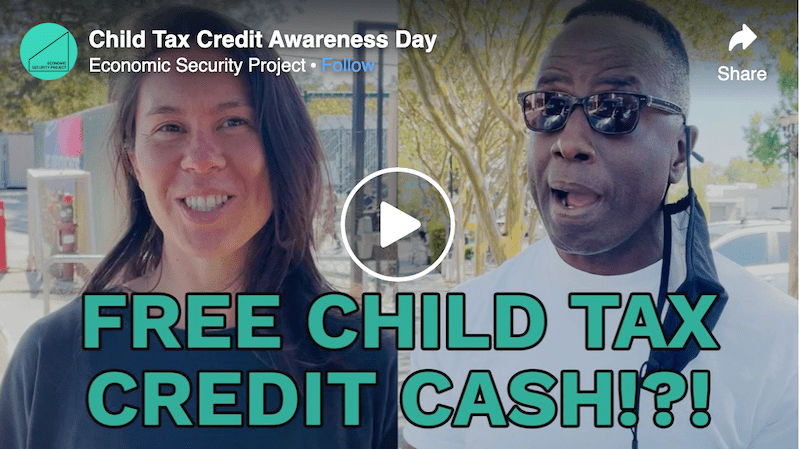On July 15th, parents will begin receiving monthly Child Tax Credit payments as part of the American Rescue plan.
The child tax credit will be game-changing for thousands of North Carolina children — but it may not reach the families who need it the most right now. Low-income parents who do not file taxes – exactly the people targeted by the newly-expanded child tax credit – will not receive it unless they sign up at IRS.gov.
Families of color are facing greater challenges
The expanded child tax credit comes at a time when thousands of families across the state are struggling with child care, rent, groceries, and school supplies. New research from ChildTrends shows the uneven distribution of these challenges on families of color: 4 in 10 Latino and Black households with children lack confidence that they can make their next housing payment. That’s compared to just 15% of white households with children.
Children in immigrant families do qualify
Families with mixed immigration status – in which the children are U.S. citizens, but the parents are not – are eligible to receive the tax credits. Parents will use their taxpayer ID number (TIN) to confirm their enrollment. The child must have a social security number to qualify.
The Child Tax Credit does not affect other benefits
The Child Tax Credit does not change eligibility for programs that are determined by income. That’s great news for families who rely on SNAP, Medicaid, or other public programs to help sustain their children’s health. Parents can safely accept the Child Tax Credit without worrying about losing Medicaid coverage or other important supports.
If you or your organization serve over-burdened, low-income families, you know what a big deal this child tax credit is for kids. Every family earning under $150,000/year will get payments of up to $300/month per child for the rest of this year. But if they don’t file tax returns, they must sign up to get the money!
Here are three ways you can help make sure the families you serve get their payments:
1. Use social media to spread the word
-
- Our friends at MomsRising have made this great social media toolkit in English and Spanish. Use it to share accurate messages about the Child Tax Credit all week long!
- No time to mess around with social media posts? Then just share this one excellent video from the Economic Security Project with your friends & followers on Facebook:
2. Share printable flyers and handouts
If you serve low-income families in a child care center, clinic, or other in-person setting, make sure you’re spreading the word.
Download a printable IRS Flyer on the Child Tax Credit: English | Spanish
Help is Here flyer (English only)
Child Care Services Association – How you can help families that did not file taxes with the IRS file for the Child Tax Credit
3. Help with the application
For those who are less comfortable using the internet, or anyone who might have trouble understanding the IRS website (which is currently only in English), there is help available. The United Way is providing free help filing for the child tax credit in both English and Spanish. Just call 211 or go to www.211.org for assistance.Want to learn more about the expanded child tax credit? For more information, see www.childtaxcredit.gov.
Let’s make the expanded Child Tax Credit permanent
The expanded Child Tax Credit is an amazing opportunity to help families bounce back from the worst impacts of the pandemic. But even before COVID-19 hit our communities, nearly half of children in our state already lived in low-income households that struggled with basic needs.
We need Congress to make the expanded Child Tax Credit permanent, to give every child a fair shot at growing up in a household that is financially secure.
Take action: Our friends at MomsRising have a simple action alert to help you contact members of Congress about making the expanded Child Tax Credit permanent.



